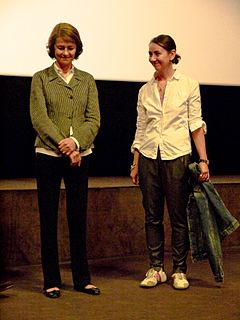A Quote by Nina Garcia
You can find a mentor; you have to ask questions, you have to show interest in what the other person is doing. You have to have curiosity - I think that people appreciate that and will want to help you.
Related Quotes
Two questions help us see why we are unlikely to get what we want by using punishment... The first question is: What do I want this person to do that's different from what he or she is currently doing? If we ask only this first question, punishment may seem effective because the threat or exercise of punitive force may well influence the person's behavior. However, with the second question, it becomes evident that punishment isn't likely to work: What do I want this person's reasons to be for doing what I'm asking?
How you ask for help is secondary to the fact that you ask for help. Some people say, "I am going to command God for help." Some people say, "I want to affirm that God help." Other people prefer prayers of supplication, in which they implore, "Please, God, help me." It all works. It doesn't matter whether you say the prayer out loud, think it, yell it, scream it, write it, sing it - it's all the same.
When people ask me what philosophy is, I say philosophy is what you do when
you don't know what the right questions are yet. Once you get the questions
right, then you go answer them, and that's typically not philosophy, that's
one science or another. Anywhere in life where you find that people aren't
quite sure what the right questions to ask are, what they're doing, then,
is philosophy.
When I want to tackle a story or a subject, I always ask myself three questions: Is it important to talk about that? Will it interest other people than just me? Can I live with that for three or four years because that's how long it takes to do the project, to write the script, and to direct it, and then to do this.
It is rather more noble to help people purely out of concern for their suffering than it is to help them because you think the Creator of the Universe wants you to do it, or will reward you for doing it, or will punish you for not doing it. The problem with this linkage between religion and morality is that it gives people bad reasons to help other human beings when good reasons are available.



































